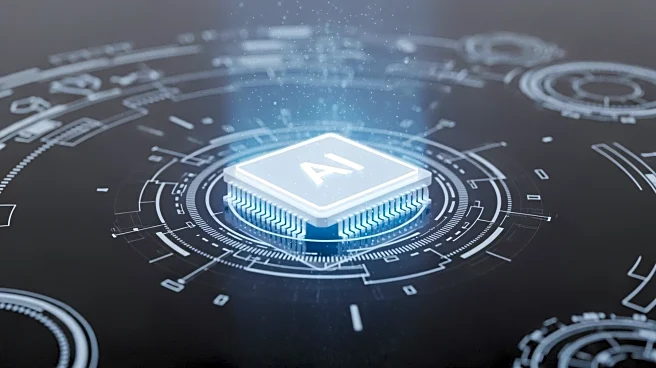What's Happening?
Tesla CEO Elon Musk has revealed new details about the company's AI5 chip, which is set to revolutionize self-driving technology. The AI5 chip, previously known as Hardware 5, will be manufactured by Samsung and TSMC at their facilities in Arizona and Texas.
This next-generation chip is designed to work with Tesla's Neural Networks, providing real-time inference for safe and logical decision-making during vehicle operation. The AI5 chip promises significant improvements over its predecessor, AI4, with increased speed, compute power, memory capacity, and efficiency. Tesla plans to release samples next year, with high-volume production expected by 2027.
Why It's Important?
The development of the AI5 chip is crucial for Tesla's ambitions in autonomous driving and AI-driven applications. By enhancing the capabilities of its self-driving technology, Tesla aims to maintain its competitive edge in the electric vehicle market. The chip's advanced features could lead to safer and more efficient autonomous vehicles, potentially transforming transportation and reducing reliance on human drivers. This innovation also positions Tesla to expand its AI applications beyond vehicles, including humanoid robots, which could have significant implications for various industries.
What's Next?
Tesla plans to begin sampling the AI5 chip next year, with limited units equipped with the chip. High-volume production is anticipated by 2027, aligning with Tesla's timeline for Cybercab production in 2026. The company is also working on future iterations, such as AI6, which promises further performance enhancements. As Tesla continues to innovate, stakeholders, including investors and industry competitors, will closely monitor the company's progress in autonomous technology and its impact on the automotive sector.
Beyond the Headlines
The AI5 chip's development highlights the growing importance of semiconductor technology in the automotive industry. As vehicles become increasingly reliant on advanced computing power, the collaboration between Tesla and major chip manufacturers like Samsung and TSMC underscores the need for strategic partnerships. This development also raises questions about the ethical and regulatory implications of autonomous driving technology, as society grapples with the balance between innovation and safety.















